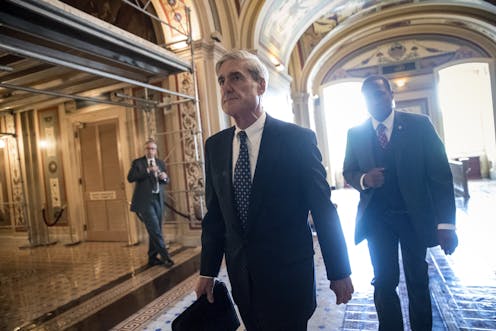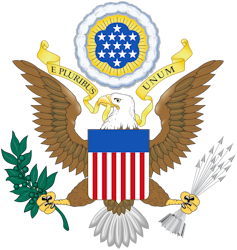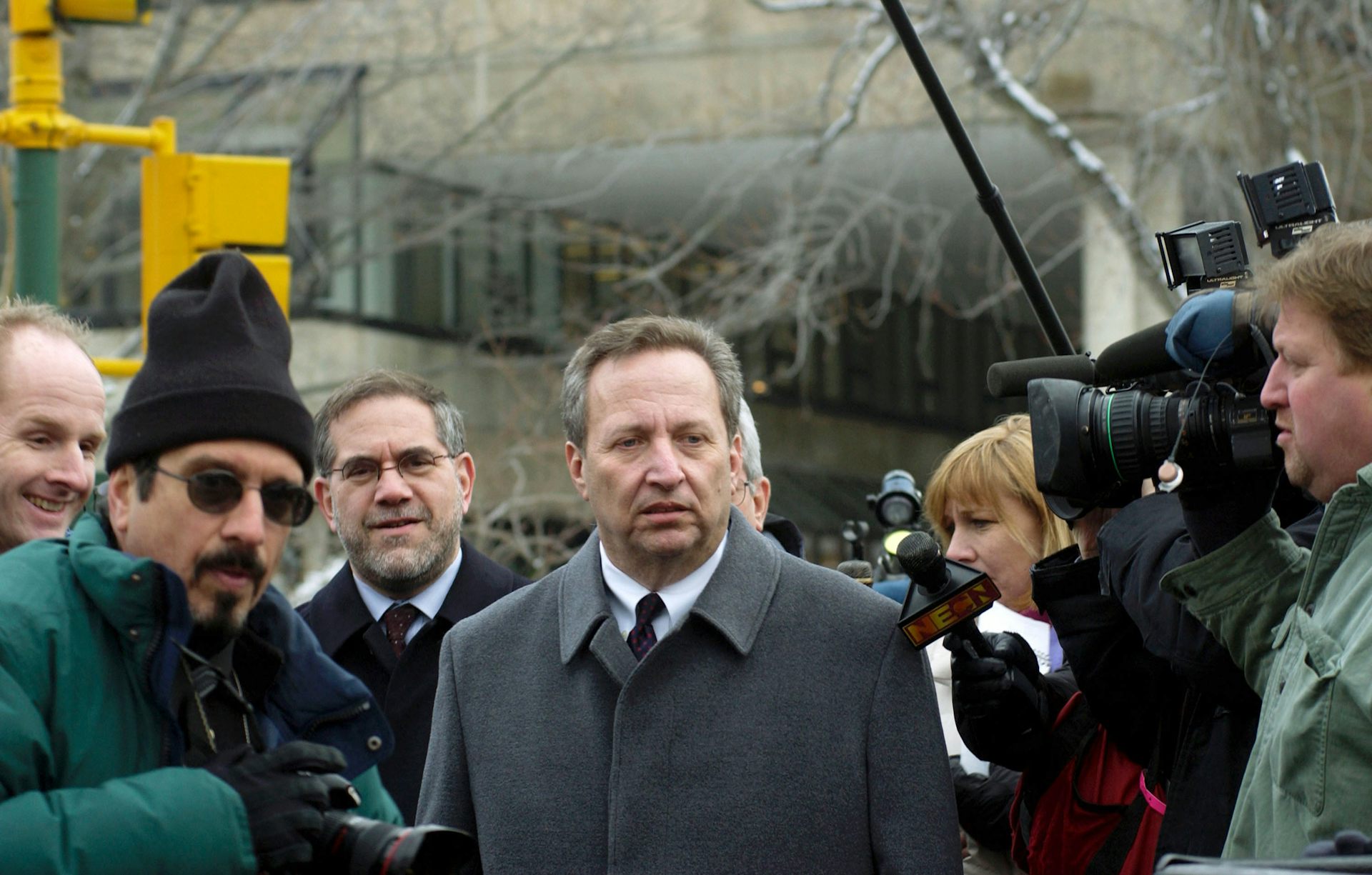Why justice is more important than the rule of law
America's understanding of justice may be compromised, which is a more fundamental issue than enforcing the law.

The 2017 Stress in America survey has confirmed it: Americans are officially freaking out.
The survey, conducted by the Harris Poll, reports that what keeps many Americans up at night is genuine political anxiety. Rather than issues related to their work or families, respondents said they were most worried about the “future of the nation” and the “current social divisiveness.” Almost two-thirds of Americans think the nation is going through “the lowest point” in its history.
As evidence for these unusually dark times, pundits often point to the breakdown of social norms and the disregard for the rule of law. To be sure, these are real problems. Yet, as a scholar and teacher of political theory and literature, I have always been amazed how quickly my students turn to talking about the abstract rule of law, rather than the concrete realities of law enforcement and justice.
Are people perhaps so interested in the rule of law because they fear American society is no longer equal and just?
Crisis
Consider the sense of injustice among many Americans that still lingers after the financial crisis and the global bank bailout in 2008. Or, consider that many politicians are incapable of addressing or unwilling to address the concerns facing many people, such as inequality, poverty and health care.
This disregard for “justice for all” and the unrest it has caused indicate a profound crisis in the United States. Public officials, it seems, can no longer adequately respond to a series of popular demands. Many people have also lost confidence that this darkness will soon pass, as my colleague George Edmondson and I recently discussed in the introduction to a co-edited book “Sovereignty in Ruins: A Politics of Crisis.”
An alternative vision for our society is nowhere in sight. Political observers cannot even agree on vocabulary to describe the bewildering phenomena that confront Western democracies such as terrorism, populism and the refugee crisis. The current unrest in the global order today has revived ideas about conflict, factionalism and civil war – what the ancients called stasis. They considered it the worst calamity that could befall a society, the dissolution of order and values.
But as ancient philosophers, and more modern thinkers like the Founding Fathers, have pointed out: In conflict resides hope and the potential for justice.
Hope and justice
The pre-Socratic philosopher Heraclitus once stated, “Conflict is justice.” In this sense, justice emerges from concrete struggles and confrontation. Take, for example, Thomas Jefferson’s list of 27 grievances against the king of England in the Declaration of Independence. It is too early to know if recent movements such as Occupy Wall Street, Black Lives Matter, the Women’s March and the #MeToo campaign will have the same revolutionary force. But they likewise grew out contemporary conflicts that revitalize past struggles for justice.
The idea of conflict as justice was well-known to the ancient Greek philosopher Plato. Contrary to the one-sided form of rhetoric by which the demagogue swayed the masses, the Socratic philosopher addressed his audience in dialogues. Insights into the question “What is justice?” often emerge during the course of bitter exchanges. In other words, justice is not an object to have, but a difficult journey to undertake.
The Founding Fathers understood that a contentious conversation on justice can prevent tyranny much better than the rule of law. James Madison once asserted: “Ambition must be made to counteract ambition.”
According to Alexander Hamilton, the United States needs economic diversity and a variety of competing interests, parties and religions in order to achieve this justice. In fact, the greater the mixture of opinions and passions in a society, James Madison observed, the more it is “consonant with the public good.”
The robust exchange of ideas makes citizens forge a stronger bond. Like chess players who try to outmaneuver each other for many hours and feel, in that moment, closer to one another than to anyone else in the world. In short, justice consists of a balancing act among contrary powers that are more or less equal in strength.
Divided we stand
“United we stand” not despite the many divisions but because of them. This is Madison’s novel insight. Not to combat factions, but to redirect them to achieve unexpected outcomes, different from the type of justice each faction advanced by itself. After all, harmony comes out of tension, even discord, like the melody produced by string instruments.

By contrast, contemporary American politics, on nearly every issue – whether gun control or immigration – has increasingly fallen within a binary logic. This logic comes from only two camps that are locked in a culture war. Americans don’t live in 11 separate nations, as the journalist Colin Woodard claimed, but only in two.
Economics professor Peter Temin recently explored this divide in his book on the “dual economy.” He argues that the cultural divide between liberals and conservatives, or between people living rural and urban America, has also become an economic one: between the prosperous and the poor.
Social media has played a role in shaping this divide. It trades an unpolitical vision of consensus – of “sharing,” “liking,” “friends” and “followers” – for genuine interrogation and discovery. Message-testing, data collection and focus-group engineering predict most of our opinions. People are fed only stories they are apt to read and moved to share. A variety of factions are gradually reduced to recognizable social types.
The framers understood the danger of conformism. They argued that the mixing and stirring among a variety of adversaries has an educational effect. It obliges everyone to learn honesty and temperance, and to view the disagreement not as an obstacle to just governance but as its enabling power.
So, contrary to the appeal that Americans must come together to achieve union, Hamilton and Madison advanced an idea that was unheard of before: that divided we stand. The current political problem might not be that the people of the United States are too divided, but that they are not divided enough. There is divisiveness only if there are too few factions.
What can be done?
Have the tenacity and patience to remain in the place of tension. Don’t look for confirmation. Instead, have the courage to sustain conflict, to stand out and be alone. Keep in mind that conflict animates politics and justice. As Henry David Thoreau said, don’t follow the herd.
In other words, turn off your devices and unplug. Read books, think for yourself and write in your own voice, different from anyone else. Create new communities and work with people who want to amplify the growing calls for justice.
Klaus Mladek received funding from the NEH, the ACLS and the Humboldt Foundation.
Read These Next
Cuba’s speedboat shootout recalls long history of exile groups engaged in covert ops aimed at regime
From the 1960s onward, dissident Cubans in exile have sought to undermine the government in Havana −…
Nanoparticles and artificial intelligence can help researchers detect pollutants in water, soil and
Tiny particles bounce light around in a unique way, a property that researchers are using to detect…
Bad Bunny says reggaeton is Puerto Rican, but it was born in Panama
Emerging from a swirl of sonic influences, reggaeton began as Panamanian protest music long before Puerto…





